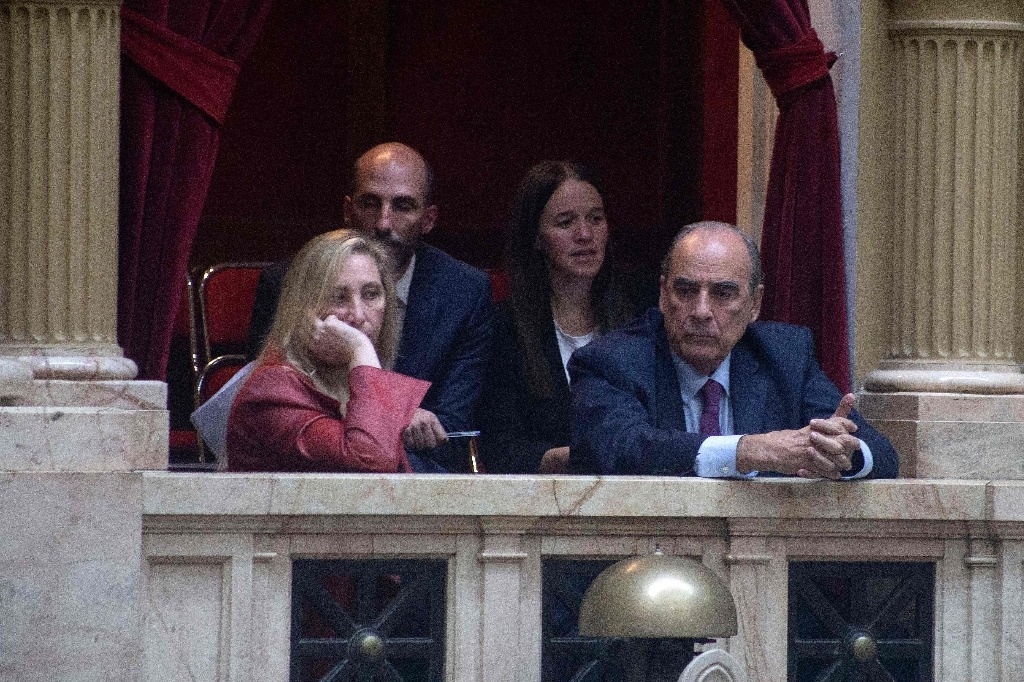Buenos Aires. The Argentine Chamber of Deputies advanced this Tuesday with the partial vote on the law with which the government of President Javier Milei seeks to implement economic and State reforms, which was agreed upon with allied opponents to eliminate the most controversial aspects and ensure its approval.
The lower house voted on the so-called Bases Law—the first regulation that Milei would achieve in Congress since he took office in December—amid a protest by members of left-wing organizations and parties. He is also expected to rule on a package of tax reforms.
Both initiatives are criticized by Peronism and the left, who point out that they harm workers and benefit companies and high-income individuals.
After almost 20 hours of debate, the lower house generally approved the draft Base Law with 142 positive votes, 106 negative votes and five abstentions. Immediately, the legislators devoted themselves to the particular discussion of the articles, an instance in which a tighter vote is expected on the most conflictive points.
The government made concessions to allied sectors to avoid the setback that, just over two months ago, an ambitious initiative that contemplated more far-reaching reforms suffered in the same legislative chamber.
The general vote on the project obtained the green light since, in addition to the votes of the ruling party La Libertad Avanza – numerically disadvantaged in the Chamber of Deputies and the Senate – were added those of its ally PRO and those of dialogue-oriented legislators of the Radical Civic Union, We Make Federal Coalition, Civic Coalition and Federal Innovation, which negotiated with the government the changes that needed to be included in the initiative for it to be approved.
As the session progressed, the lower house approved the chapter that declares an emergency in administrative, economic, financial and energy matters for a period of one year. Then it was the turn of State reform, with the delegation and powers to the Executive over public organizations and trust funds.
On the list of organizations that are safe from attempts to dissolve by the Executive are, among others, the National Institute of Cinema and Audiovisual Arts, the National Council of Scientific and Technical Research and the National Communications Agency.
But others requested by opponents, such as the National Theater Institute, the National Endowment for the Arts and the National Genetic Data Bank, were not included in that list of exceptions.
Deputy Nicolas Massot, an ally of the government, pointed out that “this is no longer ‘Milei’s law’, it is the law of this Congress because we have transformed it.” In this regard, he indicated that ”there is no superpower to privatize 41 state companies without any control; We went from 16 superpowers to three limited superpowers.”
But the head of the Peronist Union for the Homeland, Germán Martínez, questioned “the abusive delegation of powers that we are giving to the president” and highlighted the “unconstitutionality” of the project. Other opponents criticized that the tax reform initiative lowers taxes on the population with the highest incomes and burdens those who have the least.
The deputies will rule in the next few hours on other chapters, such as that of a labor reform that did not prosper at the beginning of Milei’s mandate. The ruling party backed down with measures that were read as a curtailment of the power of the unions, among them the one that limited the right to strike in activities considered essential and the one that eliminated the mandatory solidarity fees that workers who are not affiliated with must pay. The guilds.
#Argentine #Chamber #Deputies #advances #vote #Milei #reforms
– 2024-05-06 03:13:26


